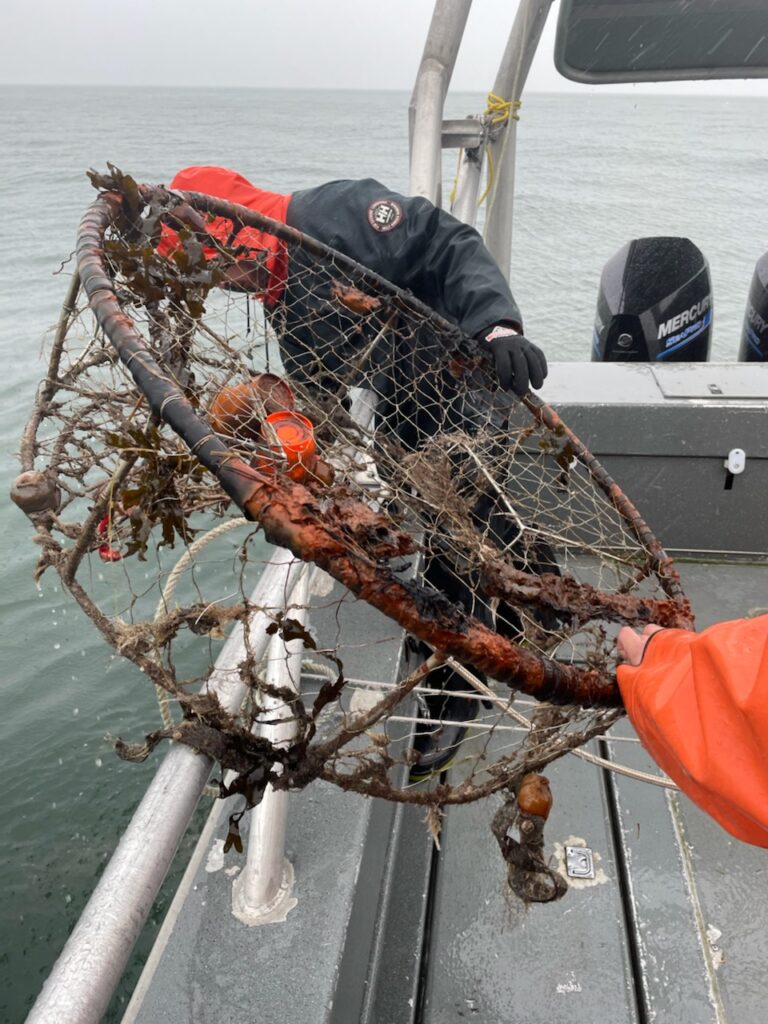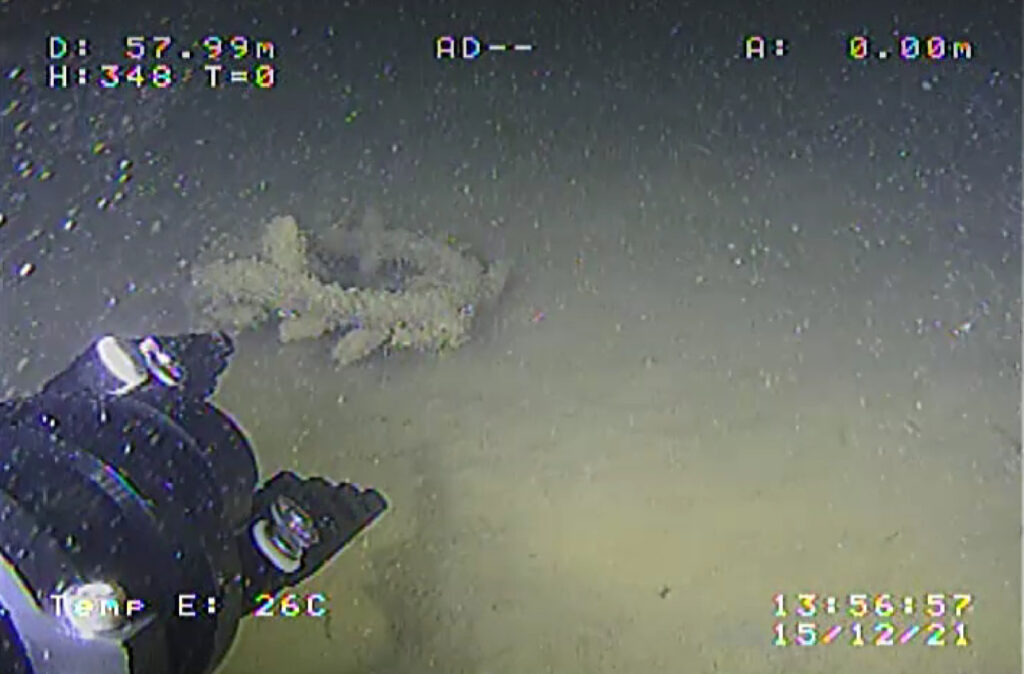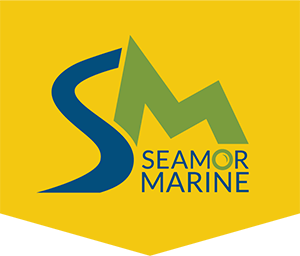The SEAMOR Chinook ROV retrieves “ghost gear” debris from ecologically
sensitive fishing grounds in Lax Kw’alaams traditional marine territory in
Western Canada.

SITUATION
In 2021, Lax Kw’alaams Fishing Enterprises (LKFE) and Shift Environmental Technologies (Shift) set off to find lost and abandoned fishing gear, or “ghost gear”, from the ecologically sensitive fishing grounds within Lax Kw’alaams First Nation traditional marine territory in Prince Rupert, BC, Canada. LKFE and Shift worked together to retrieve and responsibly dispose of the gear. The project was made possible from funding over two years from the Canadian government’s Ghost Gear Fund, First Nations
Solid Waste Management Initiative, and the T. Buck Suzuki Environmental Foundation. Problem Ghost gear has the potential to entangle fish, marine mammals, and birds, as well as damage habitats and boats within fishing grounds. Globally, ghost gear causes severe environmental and economic consequences. The Lax Kw’alaams community relies on their marine environment, so it’s imperative to keep these ecosystems clean and healthy.
SOLUTION
LKFE and Shift surveyed the area and mapped ghost gear concentrations. To retrieve the abandoned crab pots from these remote areas, the team deployed a SEAMOR Chinook ROV with a twisted-pair tether and an assortment of modular attachments. The ROV’s Blueview P900-45 multi beam sonar and Blueprint SeaTrac lightweight USBL acoustic positioning system helped effectively locate the debris in low visibility conditions. The Chinook ROV ended up truthing the sonar data. The most successful method was to find strings of crab pots using a towed or hull-mounted side-scan sonar, then revisit those spots with the ROV and get video footage of the target. The ROV footage confirmed that the debris was crab pots, helped determine whether it was retrievable, and identified the locations of the terminal ends of the string. Then a grapple was dragged through the locations of the terminal ends for retrieval.
RESULTS
Using the SEAMOR Chinook ROV, the team retrieved 630 kg of ghost gear. Port Edward Harbour Authority provided cleaning and storage facilities for the retrieved gear. The assets and training acquired through the ghost gear retrieval program assist the Lax Kw’alaams fishing community to continue retrievals for years to come. That, in turn, provides economic and environmental benefits into the future and supports Indigenous-led coastal resource management.

